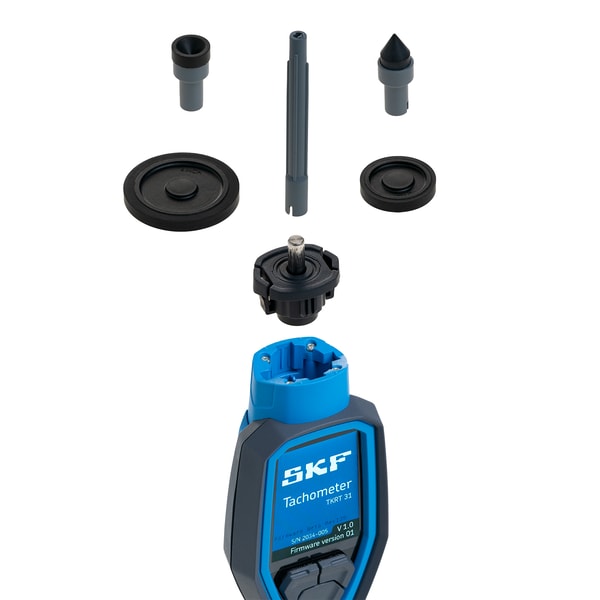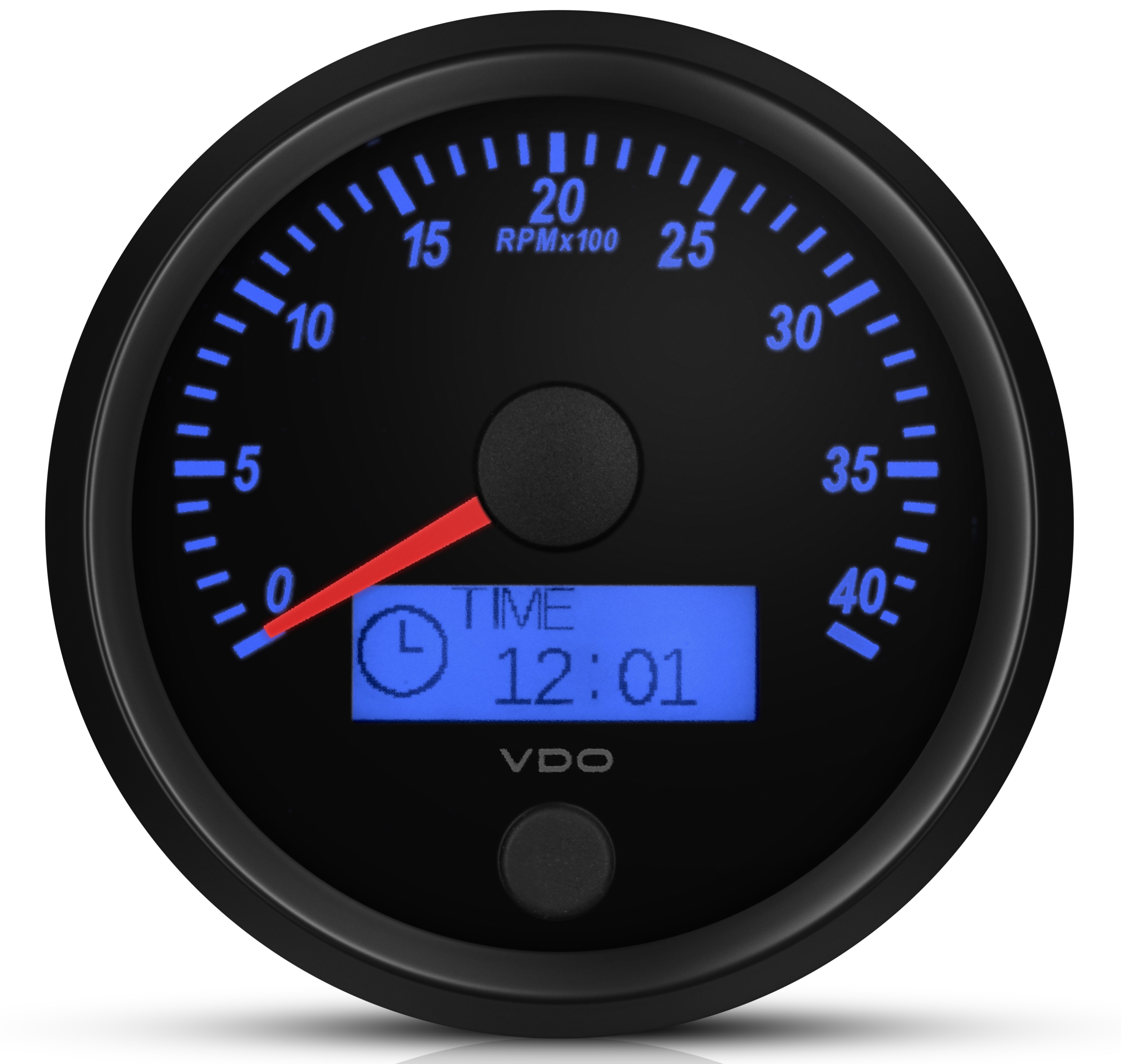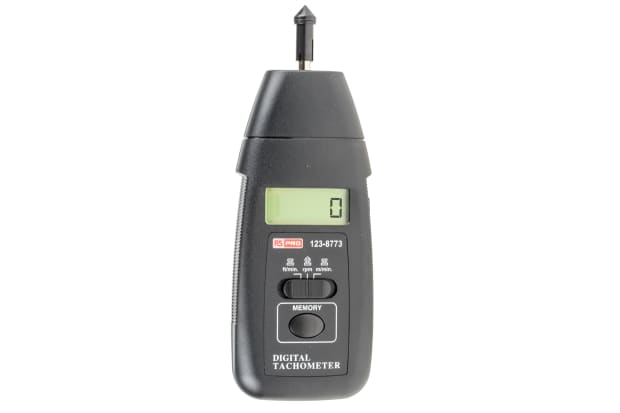The Relevance of a Tachometer in Keeping Track Of Engine Rate and Performance in Automotive Applications
In the realm of automobile engineering, the tachometer stands as an essential tool in the vehicle driver's collection, providing a direct window into the inner functions of an automobile's engine. Past its feature as a simple scale of transformations per min (RPM), the tachometer offers as a critical device for fanatics and specialists alike, offering real-time understandings right into engine efficiency and wellness.
Relevance of Checking Engine RPM
Monitoring engine RPM, or changes per min, is an essential facet of auto upkeep and efficiency examination. Engine RPM directly correlates with the speed at which the engine's crankshaft rotates, indicating how quickly the engine is running - tachometer. By checking RPM, technicians can examine the health and wellness of the engine, discover potential issues, and fine-tune efficiency. An irregular RPM reading may signify troubles such as engine misfires, malfunctioning ignition system, or issues with the gas shipment system. Consistently high RPM analyses might indicate hostile driving routines or the requirement for a greater equipment shift to boost fuel efficiency.
Moreover, monitoring engine RPM is necessary for efficiency assessment in auto racing and high-performance lorries. In summary, keeping track of engine RPM is not just essential for spotting problems yet additionally for optimizing engine performance in different vehicle applications.

Advantages of Real-Time Information
In auto applications, real-time data plays an essential function in offering immediate understandings right into the performance and condition of the automobile. By constantly keeping an eye on numerous criteria such as engine rate, temperature level, gas usage, and a lot more, real-time data provides many benefits that contribute to improved efficiency and safety when driving.
One significant advantage of real-time information is its capacity to sharp motorists and service technicians to any type of anomalies or issues promptly. This proactive strategy makes it possible for fast identification of potential troubles, permitting for prompt interventions to stop more damages or break downs. Additionally, real-time information promotes efficiency optimization by offering prompt responses on driving routines and engine efficiency. Vehicle drivers can readjust their habits in real-time based upon this info to achieve far better gas economic situation and extend the lifespan of their lorry.

Moreover, real-time information plays an important role in contemporary automobile diagnostics, enabling specialists to quickly identify and deal with breakdowns. This causes reduced downtime, lower upkeep costs, and eventually, boosted overall car integrity and longevity (tachometer). By taking advantage of the power of real-time information, automotive stakeholders can make educated choices that favorably impact both the performance and durability of the lorry
Effect On Gear Shifts
Reliable equipment changes in automotive applications substantially affect total performance and driving experience. The tachometer plays an essential function in maximizing equipment changes my review here by giving real-time engine speed data to the chauffeur. When approaching the redline on the tachometer, it indicates the motorist to upshift to avoid over-revving the engine and creating possible damages. On the various other hand, downshifting at the right moment can help maintain the engine in its power band, ensuring responsive acceleration when required.
In addition, the tachometer help in accomplishing smoother gear transitions, particularly in manual transmissions. By monitoring engine rate, motorists can carry out gear shifts at the optimum RPM variety, decreasing jerking motions and decreasing endure the transmission components. This accuracy in equipment modifications not only boosts driving convenience but additionally adds to fuel efficiency.
Enhancing Gas Effectiveness
Given the critical duty the tachometer plays in enhancing equipment changes for performance and over here engine wellness, it directly adds to maximizing gas efficiency in auto applications. By supplying real-time feedback on engine rate, the tachometer assists vehicle drivers in keeping one of the most effective RPM range for gas economy. When motorists regularly check the tachometer and change their motoring routines as necessary, informative post they can stay clear of unnecessary fuel intake caused by over-revving or lugging the engine.
Moreover, the tachometer helps chauffeurs determine the most fuel-efficient gear to be in at any type of provided moment, stopping the engine from functioning more challenging than essential. In verdict, the tachometer offers as a beneficial device in boosting gas performance by advertising ideal driving routines and determining areas for enhancement in the car's performance.

Maximizing Engine Longevity
The tachometer's role in monitoring engine rate and efficiency contributes in making sure the durability of automotive engines. By making use of the tachometer properly, motorists can enhance engine longevity via conscious RPM administration. Consistently revving an engine too expensive can bring about extreme wear and tear on essential parts, such as the pistons, valves, and bearings. With time, this can lead to decreased engine efficiency and prospective breakdowns. Keeping an eye on the tachometer allows vehicle drivers to remain within the recommended RPM variety for their car, protecting against unnecessary strain on the engine and prolonging its lifespan.

Verdict
To conclude, the tachometer plays an essential duty in keeping an eye on engine speed and efficiency in automotive applications. By supplying real-time data on RPM, it permits for efficient equipment shifts, improved fuel effectiveness, and made the most of engine long life. This tool is crucial for maintaining optimum engine performance and making sure the overall performance of a lorry.